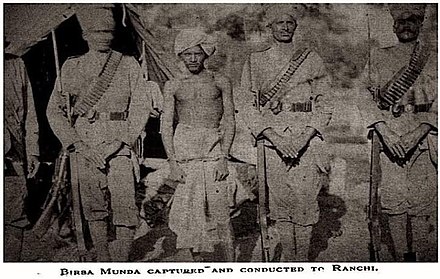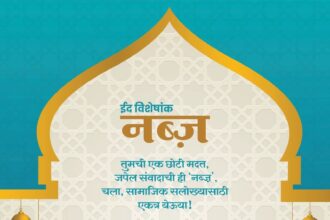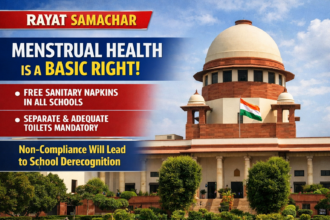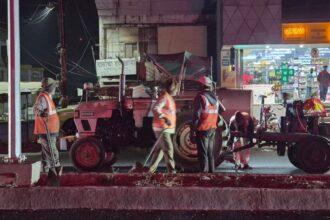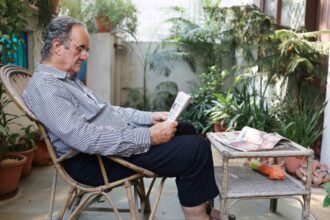DharmaWarta | 15 November | Strigdha Naik
Religion Lord Birsa Munda was born on 15 November 1875 in the village of ‘Ulihatu’ in Ranchi district, Jharkhand. He was born on a Thursday, which is traditionally known as “Bisyutwari,” and thus named “Birsa.” His father was a herdsman, looking after cattle.
Birsa, born into the Munda tribal community, was skilled in archery and marksmanship from a young age. Like other Munda children, he grew up in the forests and rural areas. He had a keen interest in reading and learning. At that time, one had to convert to Christianity to get admission to school. According to the school’s rules, Birsa converted to Christianity to gain admission, and his father enrolled him in a German Missionary School. During a school event, Father Notrott, the head of the German Lutheran Mission, referred to the Munda tribal community with derogatory terms, calling them thieves and untrustworthy. Hearing these insults, Birsa’s anger flared, and he responded sternly to Father Notrott. As a result, he was expelled from the German Missionary School. Later, Birsa renounced Christianity and began studying under the famous Vaishnav devotee Anand Anand Pandey.
Birsa Munda was deeply opposed to the exploitation of the tribal people by landlords, feudal lords, and moneylenders under British rule. Determined to raise his voice against injustice, Birsa began educating and awakening the tribal community. In 1894, he launched a rebellion against the British for the land rights of the tribals. Birsa and his followers resisted the British, launching attacks against their forces, and soon he became a leader of the people. The tribals began calling him “Dharti Aaba,” meaning “God of the Earth” in their language.
To discourage the use of alcohol, tobacco, and other intoxicants, and to keep the new generation free from addiction, Birsa founded a new religion called “Birsaite,” which worshiped nature. The Birsaite religion prohibited the consumption of meat, fish, and intoxicants.
Birsa inspired the tribal community to reclaim their cultural heritage and rights with the slogan, “End the reign of the queen, establish our own kingdom.” He demanded the British give tribals “forest tax concessions,” but the British refused. This rejection led to the declaration of rebellion.
The Munda Rebellion
Between 1899 and 1900, Birsa led a major rebellion in the southern regions of Ranchi. As a symbol of the Birsa kingdom, they raised a white flag. Birsa ordered his people not to pay any taxes to the British government. With the slogan, “Abuya Raj ete jana/ Maharani Raj tudu jana” (The queen’s reign has ended, Munda rule has begun), the rebellion spread like wildfire across Chotanagpur. Birsa and his followers set landlords’ homes ablaze. The rebellion became so intense that the British had to call in military forces. A battle ensued between the tribals and the army at Dombari Hill, in which many tribals were killed, though Birsa managed to escape successfully.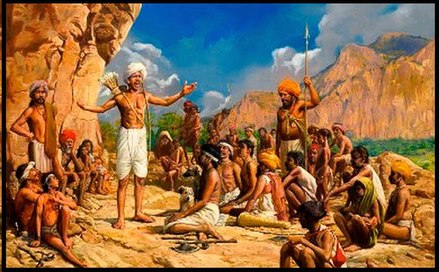
Between 1899 and 1900, Birsa led a major rebellion in the southern regions of Ranchi. As a symbol of the Birsa kingdom, they raised a white flag. Birsa ordered his people not to pay any taxes to the British government. With the slogan, “Abuya Raj ete jana/ Maharani Raj tudu jana” (The queen’s reign has ended, Munda rule has begun), the rebellion spread like wildfire across Chotanagpur. Birsa and his followers set landlords’ homes ablaze. The rebellion became so intense that the British had to call in military forces. A battle ensued between the tribals and the army at Dombari Hill, in which many tribals were killed, though Birsa managed to escape successfully.


